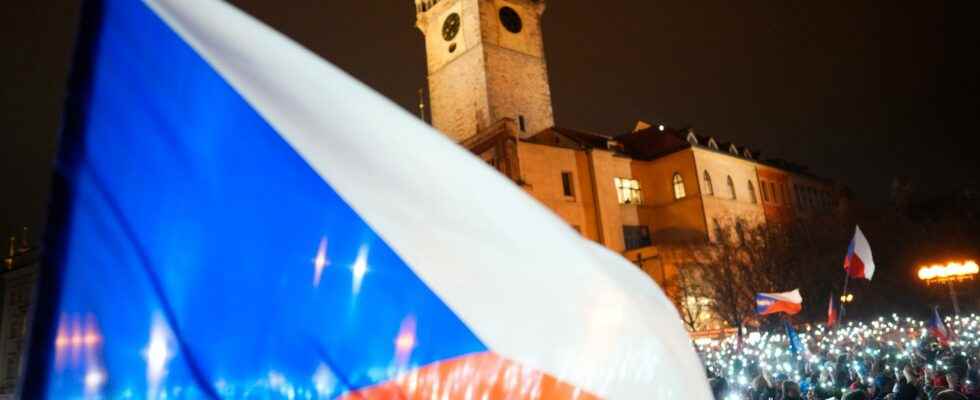By: TT TT’s correspondent
Published: Less than 20 min ago
1 of 4 Photo: Petr David Josek/AP/TT
Is the Czech Republic going from one scandal-ridden populist to another? Or will it be a former NATO summit with government support that is allowed to move into Prague Castle?
The turnout could decide this weekend’s presidential election.
In the playwright, dissident and freedom hero Václav Havel, the Czech Republic had one of the most celebrated presidents in modern times, not least in the outside world.
The man behind the “velvet revolution” in 1989 became his country’s first leader after the communist era and the peaceful division of the old Czechoslovakia. He is seen as one of the greatest Europeans of the 20th century and has had both the Prague airport and the Council of Europe’s top human rights award named after him.
But since then, things have been different. Havel’s two successors in the presidency have been considerably more controversial.
Klaus and Zeman
First came Václav Klaus, president 2003-13, an outspoken climate skeptic and critical of both NATO and the EU, who went to great lengths to approve the EU’s new Lisbon Treaty, which he believed was undemocratic.
Then came Milos Zeman, president from 2013, who called LGBTQ people “disgusting”, praised Russian President Vladimir Putin and was frequently questioned for his heavy consumption of both alcohol and cigarettes.
Now that a successor to Zeman is to be voted for, the question is whether a significantly calmer relationship with the outside world is to be expected – or whether the Czechs want to continue on the same track.
Babis against Pavel
One of the two final candidates is anyway Andrej Babis, prime minister until last year, one of the country’s richest men and often labeled as the Donald Trump of the Czech Republic. As head of government, he worked closely with neighboring Hungarian Prime Minister Viktor Orbán, causing many of his colleagues in the western and northern parts of the EU to sigh heavily at summits in Brussels.
Bolstered by having just been cleared of corruption charges, he landed on 34.9 percent of the vote in the first round of elections two weeks ago.
Opposing him is the more anonymous and politically unfamiliar former general Petr Pavel, former head of defense and leader of the military alliance NATO’s Supreme Military Council from 2015-18. Pavel has the support of the current government and received 35.4 percent in round one.
Criticism within NATO
Although Babis was voted out of government, he remains popular among many Czechs who see him as a breath of fresh air against the establishment.
However, his attempt to paint Pavel as a warmonger and himself as a man of peace during the election campaign has caused his opinion numbers to fall.
– Absolutely not, Babis answered in a TV debate when asked if he, as president, would send Czech soldiers to help if Poland or the countries in the Baltics were attacked.
It infuriated both neighboring countries and political opponents, especially given NATO membership’s principles of helping each other.
– If ever Czech freedom or independence is challenged from outside, the Lithuanians will stand side by side with the Czech people, said, for example, Lithuanian Foreign Minister Gabrielius Landsbergis on his way to the EU’s latest foreign ministers’ meeting.
Does the participation decide?
Polls ahead of the election, which takes place on Friday and Saturday, point to a victory for Petr Pavel with around 55 percent of the vote, against 45 for Babis.
However, much depends on the turnout. Will enough people who dislike Babis vote, given that the presidency is mostly ceremonial after all, while the heavy political power rests with the government?
– The question is whether Babis will be able to demobilize some of Pavel’s voters. It seems unlikely because Babis is so polarizing and many want to stop him, says political scientist Otto Eibl at Masaryk University to the AFP news agency.
Facts
The presidential election in the Czech Republic
The Czech Republic will hold the decisive second round of this year’s presidential election on Friday and Saturday.
Final candidates are Petr Pavel (born 1961), former chief of defense and supported by the parties in the election alliance Together (conservative ODS, Christian Democratic KDU-CSL and liberal Top-09) and Andrej Babis (born 1954), former prime minister and party leader of liberal Ano.
The polling stations are open between 14 and 22 on Friday and 08 and 14 on Saturday. The winner will take office on March 8.
The president of the Czech Republic has mainly ceremonial duties, but still plays an important role in the appointment of the government, the governor of the central bank and the constitutional court.
Read moreFacts
Presidents of the Czech Republic
Since the Czech Republic was created with the division of Czechoslovakia from 1 January 1993, the country has had three presidents:
1993-2003: Václav Havel (1936-2011)
2003-13: Václav Klaus (born 1941)
2013-23: Milos Zeman (born 1944)
Footnote: Before that, Havel was Czechoslovakia’s last president in 1989-92.
Read more
